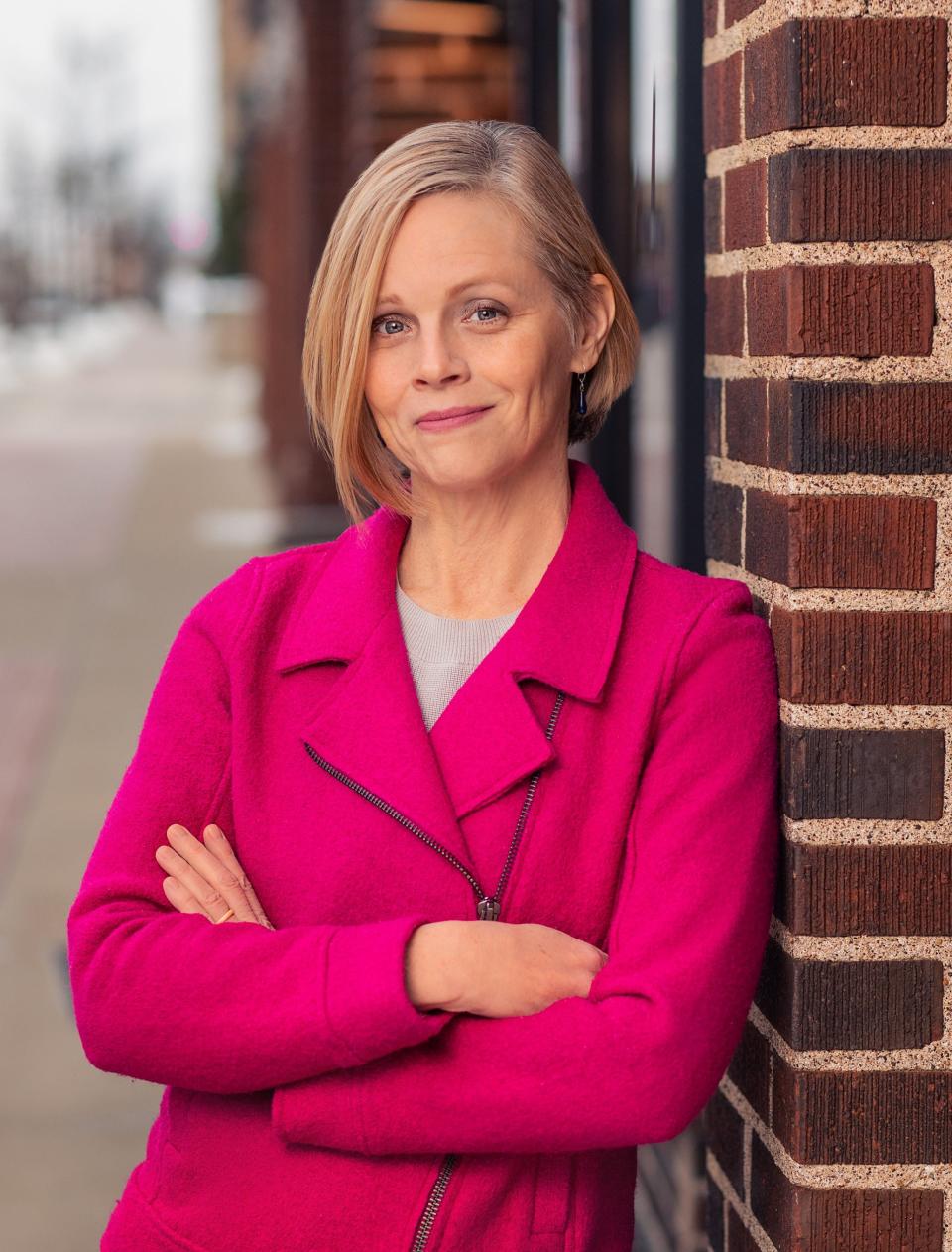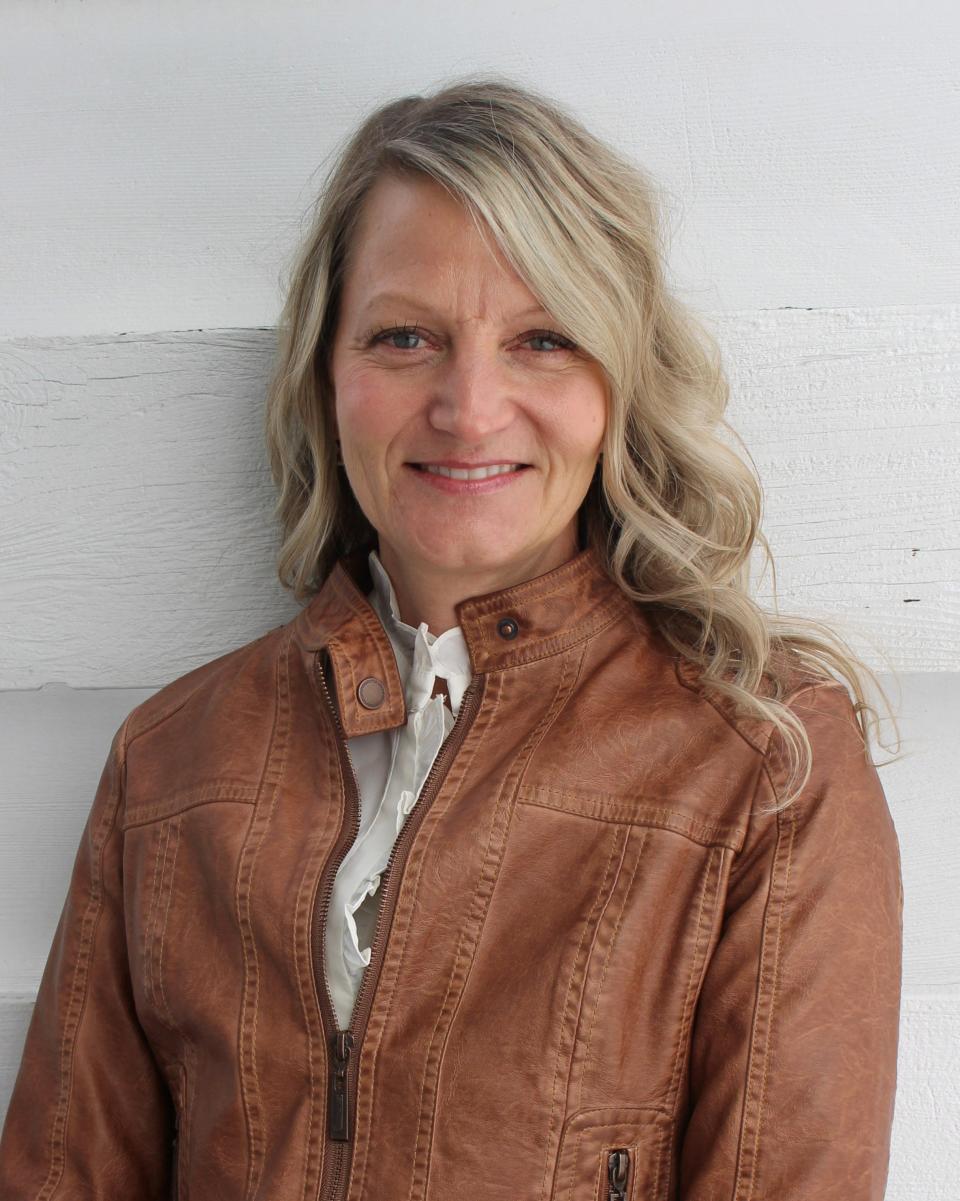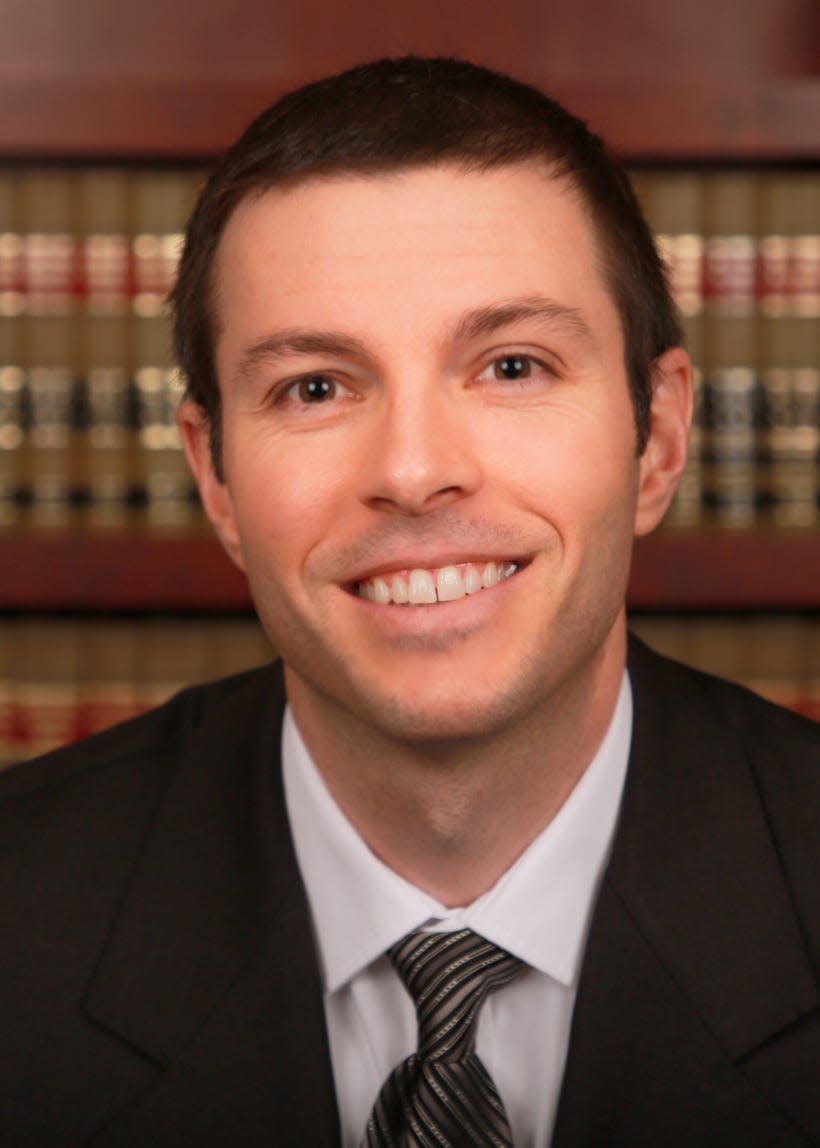Meet the candidates running for Wausau School Board in the April 4 election
Incumbents Lance Trollop and Cory Sillars will face newcomers Gillian Battino, Jennifer Paoli and Fred Tealey for three seats on the Wausau School Board in the April 4 election. Current board member E. Lee Webster is not seeking reelection.
School board candidates are elected to three-year terms.
To learn more about registering to vote and to find your polling place, visit My Vote Wisconsin.
The Wausau Daily Herald asked each of the candidates to address important issues in the district and why they are running for the position.
Gillian Battino

Age: 52
Residence: Wausau
Occupation and education: Physician. Undergraduate degree from John Carroll University, medical school at Ohio State University, residency at University of Cincinnati and breast imaging fellowship at the University of Wisconsin
Relevant experience: Mother of six Wausau School District past and present students, prior clinical instructor at the UW School of Medicine and Public Health, prior founder and director of Radiology Residency Georgetown, Guyana. Extensive experience in disability advocacy.
Campaign website/Facebook page: Gillian Battino for Wausau Kids on Facebook
Jennifer Paoli

Age: 48
Residence: Town of Rib Mountain
Occupation and education: Finance/credit department manager; associate degree
Relevant experience: This is the first time I have campaigned for an elected position. However, I am a lifelong resident of the Wausau area. My husband and I, along with our three grown children are all graduates of Wausau West High School. I am deeply rooted in our community and invested in the success of our school system and students, who are ultimately our future leaders.
Campaign website/Facebook page: Paoli for School Board on Facebook
Cory Sillars

Age: 50
Residence: Rib Mountain
Occupation and education: Self-employed business owner; associate degree from Northcentral Technical College in 1993
Relevant experience: I have been attending a majority of the Wausau School Board meetings, public conversation meetings, referendum presentations and high school career fairs over the last three years. I have been active with the Wausau West booster clubs for baseball and football the past two years. I also have been engaged with the baseball, curling, football and tennis families for the last seven years because of my children being in those sports.
Campaign website/Facebook page: Sillars for School Board on Facebook
Fred Tealey

Residence: Wausau
Occupation and education: Retired high school teacher of over 30 years, former psychiatric technician at UW Hospitals for three years, former airline agent at United Airlines for two years, presently employed by Woodson YMCA as cardio instructor. Attended the University of Wisconsin-Eau Claire, UW-Madison and UW-Stevens Point.
Relevant experience: High school teacher of over 30 years, mock trial coach, debate coach, substitute teacher at West and East high schools, and grandfather of two East High School students.
Campaign website/Facebook page: Fred Tealey for Wausau School Board on Facebook
Lance Trollop

Age: 47
Residence: Wausau
Occupation and education: Attorney; Juris Doctorate from the University of Wisconsin Law School.
Relevant experience: I’m from Wausau, graduated from the district and have children attending the district currently. I’m a current board member, so I have experience to bring to our discussions. After the election we’ll have only two or three members with more than one term of experience. Of the six others on the board, two or three will have less than a year of experience. That is not to say our new board members haven’t been good board members or that there isn’t value in having new voices. But experience is also valuable, and it’s best to have a good mix.
Why are you running for the position?
Battino: Many of the decisions that most directly impact our community are made at the School Board level. I am grateful for the high-quality public education my kids have enjoyed, and I am excited to bring my experiences and energy to serve our community. I believe that our School Board will function best with a range of opinions and a focus on community participation. Public education is the place to give every child a foundation for a successful future. As a lifelong advocate for equal opportunity, believe that I will be a valuable board member at a pivotal time.
Paoli: I am running for Wausau School Board as an opportunity to give back to our community. If elected, my goal is to be part of an effective team who, with the support and input of families, educators and administration, are able to cultivate and find mutually agreeable solutions to move our district forward together with fiscal responsibility.
Sillars: I am running to continue the work I have been able to start with my appointment to the Board on Sept. 6, 2022. The Wausau School District is at a historic moment and how we plan our future together, as a community, is important to the success of our students. I have been able to expand my knowledge of district issues and procedures quickly due to all of the meetings and participation I had before being appointed to the Board.
Tealey: My grandchildren have had a fantastic educational experience in the district’s schools, including John Marshall, Horace Mann and now East. My reason for running for office is to ensure that future students in the district will also have a superior academic and extracurricular experience. Standards need to be upheld despite various issues the district is presently encountering.
Trollop: I originally ran for the school board because I wanted to serve the community in some way. Since I believe in the importance of public education and care about the Wausau School District, I thought it would be a perfect fit. During my time on the board those feelings have only grown stronger. And, continuing from a prior answer, I believe the district and community would benefit from my experience.
What do you believe are the top two issues facing the district, and how should the School Board address them?
Battino: 1) Building resilience in our schools. The Board can prevent the catastrophic impacts of another disruption on our students by assessing our students’ and teachers’ experiences during and after COVID and learning from that so we can actively plan for an improved experience should a similar event occur. 2) Improving teacher support, satisfaction and retention. We need to listen to teachers and staff and make necessary changes so WSD becomes a highly desirable district to teach in. As we talk about restructuring, let’s be sure we attract and retain the best educators possible.
Paoli: As with all school districts we are tasked with numerous issues. At the forefront is restructuring our district. There has been a lack of transparency and information provided to the community. The district needs to do a far better job of outlining what is being proposed and why. They need to ensure this information is being shared with the public. Another issue is fiscal shortfalls. Every year programs are being cut and resources seemingly disappearing. We need to look for inefficiencies and work toward a balanced budget that does not compromise academic excellence but still provides fiscal responsibility of taxpayer dollars.
Sillars: Issue one is the merger and restructuring of the school buildings. The outline for redistricting has merit, but the lack of detail given to the public at the start is ridiculous. That is why I voted "no" at the Feb. 13 Board meeting. The second issue is funding and expenditures. For 20 years the district has constantly cut something from activities, supplies and other items to get closer to a balanced budget each year. As a Board member, it is necessary that I engage in talks with our state legislators to encourage additional "per pupil" dollars be added to the state budget.
Tealey: 1) Funding. Many schools have to go to referendum to attain funds for operating costs. More state funding is needed, in fact, a large portion of the $6 billion surplus of the state should be redirected to public schools. The board needs to engage the public to motivate state legislators to increase this funding. 2) Mental health. Too many students are lost in larger schools which affects their mental health, socialization and learning. The district can implement changes to address these issues by having smaller classes, more opportunities for students to partake in after school and increasing staff to deal with mental health issues.
Trollop: It’s impossible to answer within the word limit, but two issues are student achievement and finances. Student achievement must be on our minds with every decision we make. Regarding our budget, we are $25 million behind inflation over the last 11 years. We also have over 700 fewer students now compared to 20 years ago, which results in millions of reduced funding every year. And, based on age 0-5 births, we were recently advised to expect enrollment to decrease over 600 students in the next five years. Becoming more efficient is one of the reasons for the reorganization plan.
The School Board recently approved a reorganization of the Wausau School District and a petition has collected more than 1,000 signatures asking for a referendum. How would you like to see this process move forward and what is most important to consider for students, staff and the community?
Battino: I support a new referendum for this proposed pivot in spending. A new referendum will put this vitally important decision in the hands of the community and will effectively let folks know what the Board is proposing. The community must have a voice in the process so folks are not left feeling powerless about how their tax dollars are spent and how their kids are educated. The most important consideration is transparency. Without a truly transparent process we will not be successful.
Paoli: I would be in favor of a nonbinding referendum question pertaining to the merger and restructuring of our district. It is crucial that Wausau families have an opportunity to provide their input. Unfortunately, a referendum question will have to wait until the spring 2024 election. However, I anticipate more details and revisions to the plan will be forthcoming to the community during this time. Allowing us all to make informed, educated decisions in moving our district forward together.
Sillars: I am in favor of Wausau families getting a chance to vote on a nonbinding referendum question. I believe it should have been asked for this April's ballot and now it will have to wait until April 2024. The positive with waiting is that more details and probably some revisions to the initial restructuring outline will be created by that point so families will have a clearer picture of what may ultimately be finalized as a restructuring plan. There needs to be continued public forums every other month or at least quarterly to give the community opportunities to stay engaged and informed throughout the process.
Tealey: The district needs to listen to the students, parents and community. The district needs to call a halt to the restructuring until it receives significant input from the community. The public needs to be heard. The process the board set down is too much, too fast. This mega restructuring may have some merit, but only if the public is involved. Seven people on the board should not determine the fate of the 59,000 citizens of the school district. True, the board had some listening sessions, but the ones I’ve attended were a slick marketing plan, not a "listening" session.
Trollop: While the structure of a plan has been approved, a lot of work must be done over the next couple years before there is implementation. It should move forward carefully and with great thought, discussion and planning. Regarding what is most important to consider in this process, again it is student achievement, staff working conditions and finances. How can we reorganize in a way that makes us more efficient, while at the same time offering better educational opportunities and supports for our students and better working conditions for our staff? That is the goal.
More:Wausau School Board approves plan to combine high schools and reduce elementary schools
How will you address issues of mental health in the district?
Battino: I believe that our district should frequently and directly assess our students' mental health and overall well-being. This could be accomplished with a regular electronic age appropriate check-in with a range of questions on things like safety at home, concerns of school violence, depression/anxiety, peer concerns, bullying and food insecurity. We also require a more robust on-site mental health support team so we can be proactive instead of reactive.
Paoli: Mental health, especially among our youth, has become an increasingly significant issue. Additional funds have already been allocated to assist in this area, however, more emphasis is needed. This includes working to ensure we have the proper staff and resources available to those in need.
Sillars: The issue of mental health has been initially addressed with the passing of the $4 million operations referendum question in April 2022. That funding has been used to hire additional pupil services staff for each of our schools, with the underserved buildings getting staff first as I understand it. We are not fully staffed yet and that is something I asked the administration about recently. It is a lack of trained professionals at this point in the hiring pool of applicants, and it will be an ongoing process to get those positions filled.
Tealey: The district needs to create a positive, safe environment by enforcing anti-bullying policies; training students and staff to prevent bullying; possible late school start times. Also, adding more mental health personnel; implementing smaller classes so students can bond with other students and teachers, ensuring the student feels a part of the school. In addition, the school needs to prioritize students who have mental health challenges, i.e. high-risk students, children from troubled homes, children with disabilities and children with trauma.
Trollop: Mental health is a great concern for all districts, but the role of the board is to set policies and goals. We don’t address mental health by being involved in the daily running of the district. Our role is to support our staff as best we can to address this important issue and to set policies and goals that further this support. This is also part of the reorganization discussion. We want to create situations through consolidation that allow for greater supports for students when they are needed, rather than being spread too thin over many buildings.
How should the district address the learning loss students experienced during the pandemic?
Battino: We need to work with students, teachers and families to understand and address learning losses at every grade level. This means we must be prepared to fund additional resources where needed to add tutors, summer programming and in-school support that our learning community deserves. The fact that school looks "back to normal" does not mean that students have caught up.
Paoli: Addressing “learning loss” as a result of the pandemic is a challenge that we’ll be tasked with for years to come. Our younger students have the benefit of time and being able to catch up with proper resources, specialists and an emphasis on academic excellence. Unfortunately, our older students do not have that same benefit of time and being able to catch up before they graduate. For those older students we need to focus on making sure they have the necessary resources along with strong educator availability and support to help them achieve pre-pandemic levels.
Sillars: Addressing learning loss from the shutdowns will be an ongoing topic for the next few years. The younger students will have the opportunity to "catch up" by the district moving toward having specialists in math and English to help them get back to "grade level" learning standards. Unfortunately, our older students may not get back to where they were pre-pandemic in their academic achievements before they graduate. We can continue to provide the resources for them while they are in our system and hope they are able to push themselves, with teacher support, back to their pre-pandemic levels of learning.
Tealey: The district needs to promote tutoring sessions whenever possible. Smaller classes are needed so teachers can provide individual attention to those students. Testing needs to be instilled to target a student’s learning loss and, thus, develop a strategy to correct it. Some summer school programs directed toward those students whose test scores show that help is needed. During the school year itself, a six-week afterschool catchup courses could be offered specifically directed toward missed standards.
Trollop: My answer to this is very similar to the answer about mental health so I won’t repeat it here. One thing I’d add is the goal of improving academic achievement applies every year. Whether it was before the pandemic or after, every year we study achievement and look for ways to improve.
More:Could a Chipotle and Chick-fil-A restaurant both be coming to Rib Mountain?
More:A retailer has confirmed it will open in the former Gordmans space in Rib Mountain
Editor Jamie Rokus can be reached at jrokus@gannett.com or follow her on Twitter at @Jamie_Rokus.
This article originally appeared on Wausau Daily Herald: Wausau School Board: Candidates on the spring 2023 ballot

